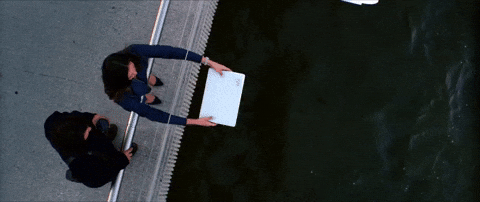Time off only works when you don’t
I flew to the mountains to disconnect and came back with a job offer (and a lesson)
A couple of years ago, I booked a cabin in the mountains of Colombia. It was tucked away in a tiny village near Tayrona National Park, the kind of place where you can hear birds instead of traffic and buy fruit from someone who picked it that same morning. I was in between jobs, overstretched from a couple of intense freelance years, and I had absolutely no clue what I wanted to do next. What I did know was that I needed rest. Proper rest. No deadlines, no Slack notifications, no pretending to take a break while secretly still working. Just space to figure things out and maybe remember what it felt like to breathe.
Taganga beach, where I swore I’d rest, reset, and not touch my laptop
It was the first real holiday I’d taken in two years. I booked the cabin for a whole month. I packed books, yoga clothes, notebooks, and imagined daily hikes, long mornings with coffee, and maybe even some form of spiritual clarity. I was finally going to disconnect.
And then, just like that, I packed my laptop.
The first few days were magical. I read. I did yoga. I wandered around the village buying mangos and making small talk. I felt like someone in a slower version of my own life, someone who didn’t need to be useful all the time. But somewhere around day five, I opened my laptop “just to check something.” You can guess what happened next.
There was an email. A good one, too, a potential client with an exciting job offer. I told myself I’d just read it and think about it. Then I was updating my CV. Then I was taking a call. Then I was knee-deep in interviews, talking to different team members, prepping a proposal, and shifting my head back into work mode without even realising it. My month-long retreat turned into a frantic transition into yet another job. I cut my trip short after three weeks and flew to the other side of the world to meet the new team.
And here’s the part that still makes me laugh, in a slightly bitter way: when I finally met them and told them where I’d been, they looked at me and said, “You could’ve taken your time. We weren’t in a rush. We were just exploring options.” If I’d waited even two weeks to reply, the opportunity would’ve still been there. They would’ve understood. But I didn’t ask because I didn’t believe I was allowed to rest.
So after two full years with no real time off, I accidentally turned my first chance at rest into another rushed pivot. It ended up being another year of intense work with barely a pause.
Things are different now. I’ve moved on from that job and that lifestyle, and I’ve landed at a company that treats rest as part of the work. Where nobody expects you to be online at all hours, and people genuinely encourage you to log off and mean it. It took me a while to adjust. At first, I kept operating like I had before, I was answering messages late, keeping my notifications on, trying to stay always available. Until Rachel told me, very directly, to stop doing that. That good work doesn’t come from being always-on, and that taking a break isn’t something you should feel guilty about, it’s something you should protect.
It sounds simple, but for a lot of us, it’s not. So if you’re planning a break (any kind of break), here’s what I wish someone had told me earlier:
Close the tab. The email will be there when you get back. If something’s urgent, the people who need you will find a way to reach you, and the rest can wait. Don’t let a moment of curiosity turn into a spiral of “just one more quick thing.” Give your brain the quiet it’s been asking for.
Tell people you're taking time off, and be specific about what that means. You're not "around if needed." You're off. That might mean people know they'll have to wait until you're back, or it might mean you've handed off your tasks and made sure the team knows what to do while you're away. Either way, you're setting expectations so you can actually rest without second-guessing yourself. Set the tone early, and stick to it.
Don’t pack the laptop unless you're really prepared not to open it. Better yet, LEAVE IT BEHIND!
Resist the urge to justify your rest. You don’t need to be recovering from burnout or in the middle of some identity crisis to take a break. You’re allowed to rest simply because you want to. That’s enough. Time off doesn’t need to be earned with suffering, it can just be part of how you take care of yourself.
And finally, trust that you're not missing out by stepping back. You're actually making room for the part of you that’s usually buried under notifications, calls, and expectations. The part that quietly asks, “What do I want next?” and needs a little silence to answer.
You don’t owe the world constant access. You owe yourself a moment to rest. And if you’re lucky enough to get that moment, don’t waste it on a CV update.





